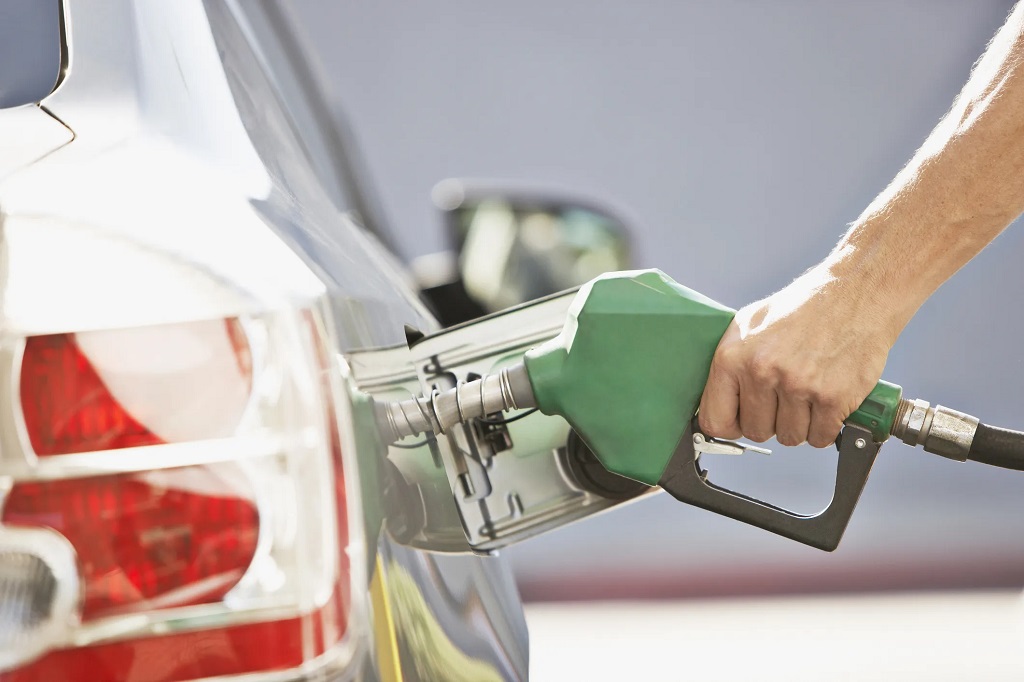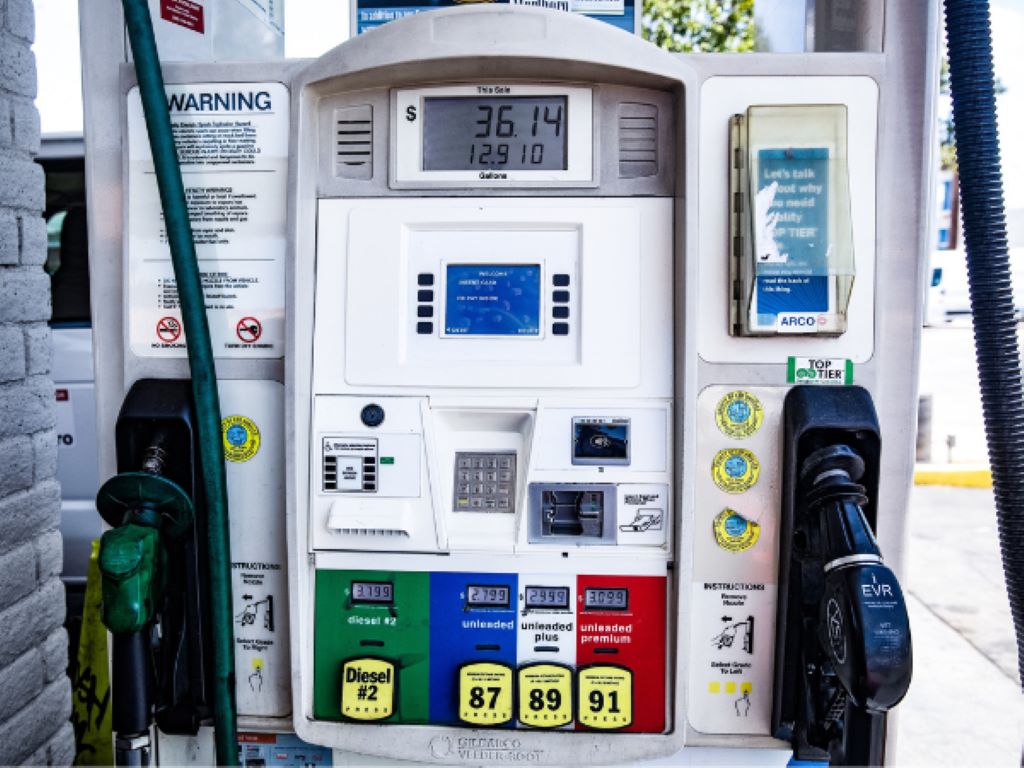Have you ever wondered what would happen if you accidentally put diesel fuel into your gas-powered car? It’s a common concern among drivers, and the consequences can be quite serious. In this article, we will explore the potential issues and damage that can occur when diesel is mistakenly added to a gasoline car. So, when it comes to complete automotive care, it’s important to remember that mixing the wrong fuels can have serious consequences.
Things will Happen if You Put Diesel in a Gas Car
Putting diesel in a gas car can damage the engine, fuel lines, and other components. Diesel fuel is thicker and has a higher BTU rating than gasoline, meaning it will not burn as efficiently in a gasoline engine. This can lead to the following problems:
- Clogged fuel lines: The thicker diesel fuel can clog the fuel lines, preventing fuel from reaching the engine. This can cause the engine to sputter and stall.
- Carbon buildup: Diesel fuel produces more carbon buildup than gasoline, which can damage the engine’s pistons, valves, and other components.
- Knocking: The higher BTU rating of diesel fuel can cause the engine to knock, which is a loud noise that occurs when the fuel ignites prematurely. Knocking can damage the engine’s pistons and bearings.
- Reduced fuel economy: Diesel fuel will not burn as efficiently in a gasoline engine, which will reduce fuel economy.
- Damage to the catalytic converter: The catalytic converter is a part of the exhaust system that helps to reduce emissions. Diesel fuel can damage the catalytic converter, rendering it ineffective.
If you accidentally put diesel in your gas car, it is important to stop driving immediately. It has the fuel tank drained and the fuel system flushed by a qualified mechanic. Driving with diesel in a gas car can cause serious damage to the engine and other components.
The Chemistry Behind It
Before we delve into the effects, let’s understand why this mix-up is problematic. Diesel and gasoline have distinct chemical compositions. Diesel fuel is denser and contains more energy per gallon compared to gasoline. Gasoline engines rely on spark plugs to ignite the fuel, while diesel engines use compression to generate heat for ignition.
In recent years, there has been a growing movement towards more sustainable and environmentally friendly transportation options. People are increasingly opting for eco-conscious modes of travel, such as walking, cycling, or riding an electric bike, to reduce their carbon footprint. However, cars remain an essential part of the lives of many people, and car culture continues to thrive. While efforts are being made to shift towards greener alternatives, the convenience and familiarity of automobiles still dominate our daily commutes and lifestyles.
When we talk about the car culture, one aspect that stands out is the culture of modification. It’s fascinating to explore car culture necessity in https://ourautocity.com/car-culture-and-lifestyle/why-are-cars-important-in-culture/. Also, you can see how car enthusiasts push the limits of what is possible with their rides. However, it’s important to note that when it comes to modifying your car, there are certain things that you should avoid, such as putting diesel in a gas car. Many car enthusiasts enjoy modifying their cars to improve their performance, appearance, or both. Vehicle modification is a popular hobby among car enthusiasts. This can involve anything from simple changes like installing new wheels and tires to more complex modifications like engine swaps and suspension upgrades. Many people enjoy the process of customizing their vehicles to make them unique and reflect their personal style.
Immediate Effects
1. Engine Knocking
Putting diesel in a gas car can cause immediate engine knocking. Gasoline engines are not designed to handle the high compression ignition of diesel fuel. This can lead to loud knocking noises and decreased performance.
2. Reduced Power
Diesel fuel doesn’t burn as well in a gasoline engine, leading to reduced power output. You’ll notice a significant drop in acceleration and overall engine performance.
3. Smoke and Odor
Your car’s exhaust will emit thick black smoke and a pungent odor. This is due to incomplete combustion of diesel in a gasoline engine.
Long-Term Damage
4. Clogged Fuel System
Diesel has a different viscosity than gasoline, which can lead to clogs in the fuel system. This includes the fuel filter, injectors, and even the fuel tank.
5. Damage to Spark Plugs
The high compression ignition of diesel can damage the spark plugs in a gasoline engine, leading to costly repairs.
6. Engine Damage
Continued use of diesel in a gas car can cause severe engine damage, including damage to pistons, cylinders, and the catalytic converter.
Can It Be Fixed?
If you’ve accidentally added diesel to your gasoline car, don’t panic. Here’s what you should do:
- Do Not Start the Engine: Starting the engine can exacerbate the problem. Avoid turning the key.
- Drain the Tank: Contact a professional mechanic to drain the fuel tank and clean the fuel lines.
- Replace Spark Plugs: In some cases, spark plugs may need replacement due to damage.
- Check for Further Damage: Have the engine thoroughly inspected for any long-term damage.
Conclusion
Putting diesel in a gas car can have immediate and long-term consequences for your vehicle. Staying attentive at the pump and double-checking the fuel type before filling up is crucial. Misfueling can lead to expensive repairs and headaches down the road.
FAQs
- Can I drive my car if I’ve accidentally added diesel to it?
No, driving your car is unsafe if you’ve added diesel to a gasoline engine. The engine may suffer damage, and it could be hazardous to operate the vehicle.
- How much does it cost to repair a car after misfueling?
The cost of repairs can vary widely depending on the extent of the damage. It may range from a few hundred dollars for draining the tank to several thousand dollars for engine repairs.
- Is it common for people to misfuel their vehicles?
Yes, misfueling is a common mistake, and it can happen to anyone. It’s important to double-check the fuel type before filling up.
- Can I dilute the diesel with gasoline to fix the issue?
Diluting diesel with gasoline is not a recommended solution. Having a professional mechanic drain the tank and clean the fuel system is best.
- How can I prevent misfuelling in the future?
To prevent misfuelling, always double-check the fuel type, use the correct nozzle, and pay close attention to the gas pump to avoid costly mistakes.






